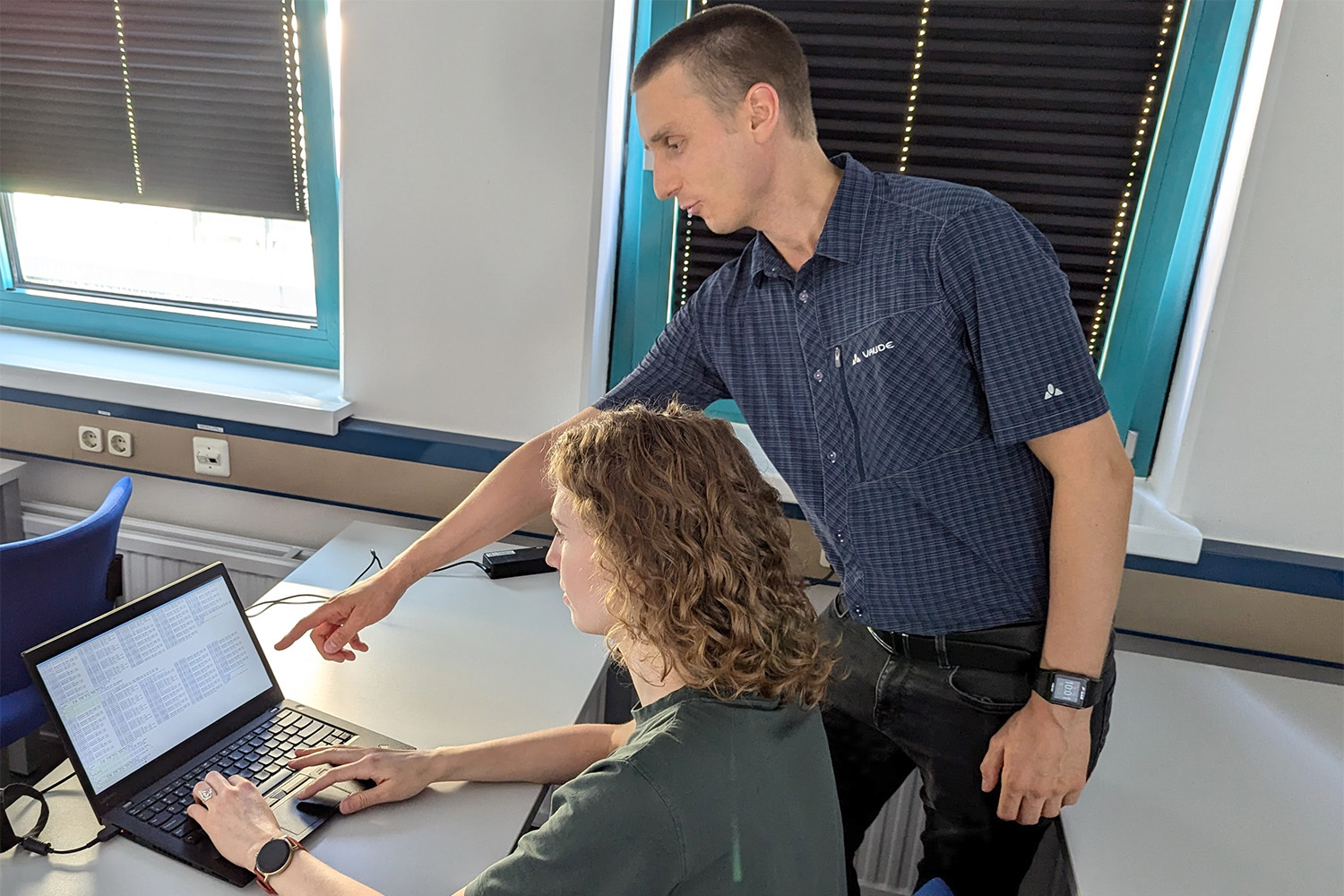Analysing large amounts of data in the life sciences Summer school brings together young researchers interested in plant-microbe interactions in Braunschweig
Inspired by last year’s symposium on plant-microbe interactions (Microbial Interactions in the Phytosphere), the Institute of Plant Biology at TU Braunschweig organised a summer school on “Big Data Analytics for Life Scientists”. Organised by Prof. Dr. Andre Fleißner (TU Braunschweig) and Prof. Dr. Bernard Slippers (FABI, University of Pretoria, South Africa), the symposium brought together researchers from TU Braunschweig, the Julius Kühn Institute, the DSMZ and the HZI as well as guests from South Africa, Spain and Hamburg to discuss the function and role of plant-associated microbiomes. The summer school organised by Prof. Dr. Boas Pucker was one of the first activities resulting from the symposium. In one week, PhD students from different research institutions in Braunschweig acquired basic skills in genomics, transcriptomics and applied bioinformatics. They also learnt strategies for learning how to install and use new bioinformatics tools independently in the future.

Prof. Boas Pucker explains the next step to Anne Oostlander. Photo credits: Sofie Friedrich/TU Braunschweig
“The efficient analysis of large amounts of data is becoming increasingly important in all areas of life sciences. In my work with microbial pathogens, it was very important for me to improve my skills in dealing with ‘big data’,” says Esteban Charria Girón from the Helmholtz Centre for Infection Research (HZI). After learning the theoretical foundations of various aspects of data analysis, the PhD students worked independently on tasks involving plant, fungal, bacterial or viral data sets. The programme was made possible by the excellent support of the German Network for Bioinformatics Infrastructure (de.NBI).
Steffen Carl (Federal Environment Agency/Leibniz Institute DSMZ) added: “With lectures on the theoretical basics and a large practical component in small groups, the Summer School offered a very good all-round package for the implementation and analysis of -omics strategies, which are also increasingly being used to investigate the adverse effects of environmental chemicals on microbial communities. The course covered all the steps from planning such studies and processing large amounts of data using modern bioinformatics methods to presenting and publishing the results. All in all, a very successful training programme”.
“The methods presented gave me ideas for new analyses that I will carry out with the data I have already collected,” says Sofie Friedrich (TU Braunschweig).
Lasting exchange between research institutions
“This event was a great opportunity to get to know other PhD students with similar interests,” says Mareike Rohde from the Julius Kühn Institute (JKI). There were many opportunities for scientific exchange in the breaks between the morning lectures, during the lunch break and also during the practical exercises in the team. The networking of the PhD students at the Braunschweig location enables a sustainable exchange between the research institutions.
This summer school is a further step towards a joint research network. Prof. Dr. Boas Pucker has tailored the programme specifically to the interests of young researchers in the field of plant-microbe interactions in order to create a basis for future collaborations.
Analysing large amounts of data to study tree health
“In collaboration with the University of Pretoria in South Africa and several research groups in Braunschweig, we have recently developed a project to investigate the role of tree-associated fungi in forest health and resilience. The effects of climate change on the interactions between trees and their mycobiomes are not yet well understood, although it is already clear that they can play a dramatic role in forest resilience. The analysis of large data sets will be essential for the project,” explains Anne Oostlander (TU Braunschweig). “I am proud to be part of this initiative and hope that our work can contribute to more sustainable forest management. The international feedback we have received so far is very encouraging”.
Symposium planned for 2024
Following the Big Data Analytics for Life Scientists summer school, there are plans to strengthen collaboration between the Braunschweig working groups through further symposia and summer schools on plant-microbe interactions. The 2023 symposium already brought together researchers to discuss the role of plant-associated microbiomes and their importance for agriculture and forestry in the face of climate change. A repeat event is planned for this year, demonstrating that Braunschweig is a promising location for research into microbial interactions in the phyllosphere.
Text: Lina-Marie Strzelczyk, Anne Geertje Oostlander and Sofie Friedrich
